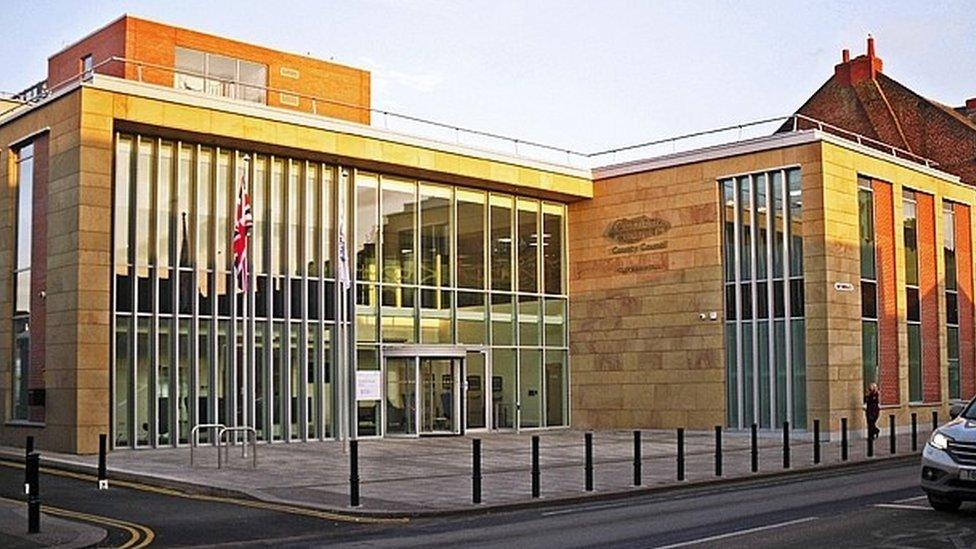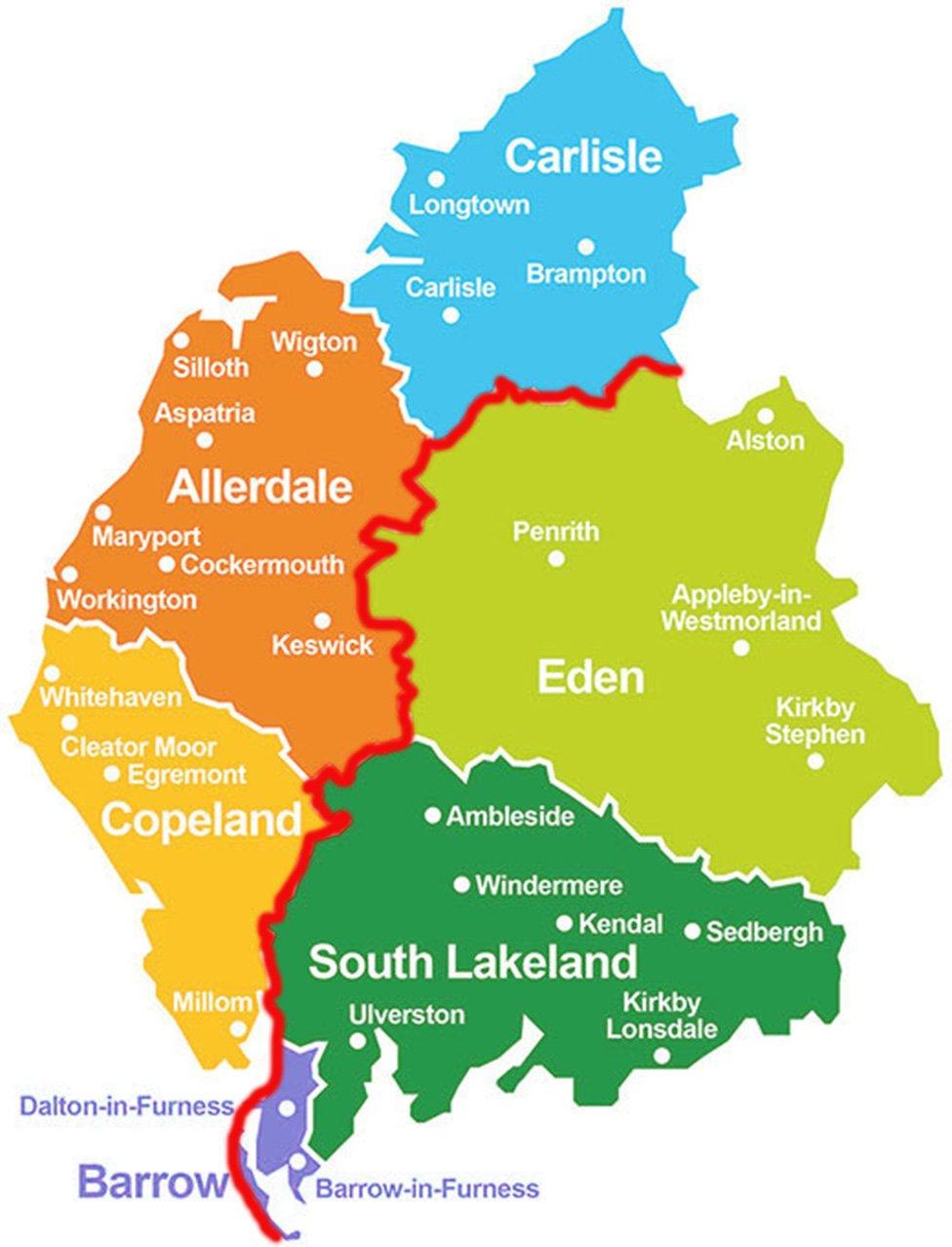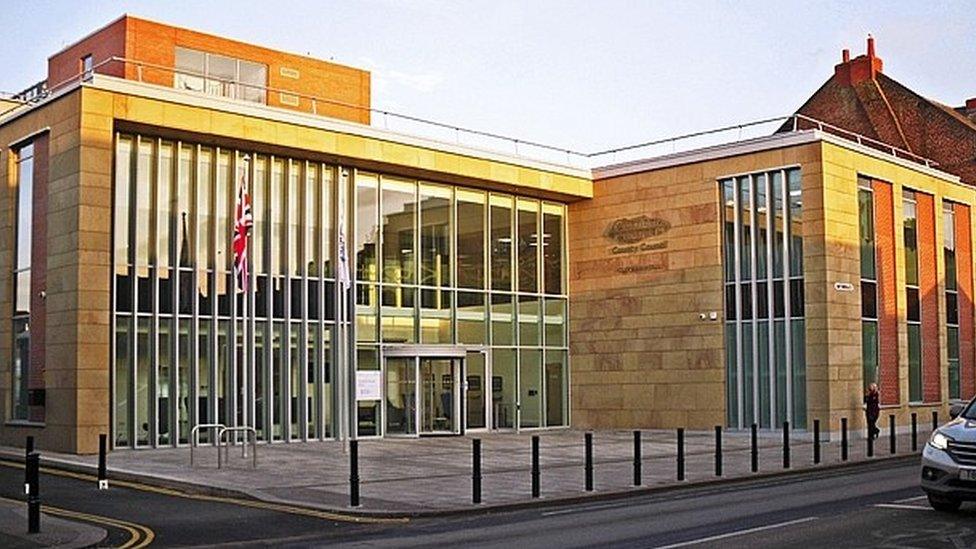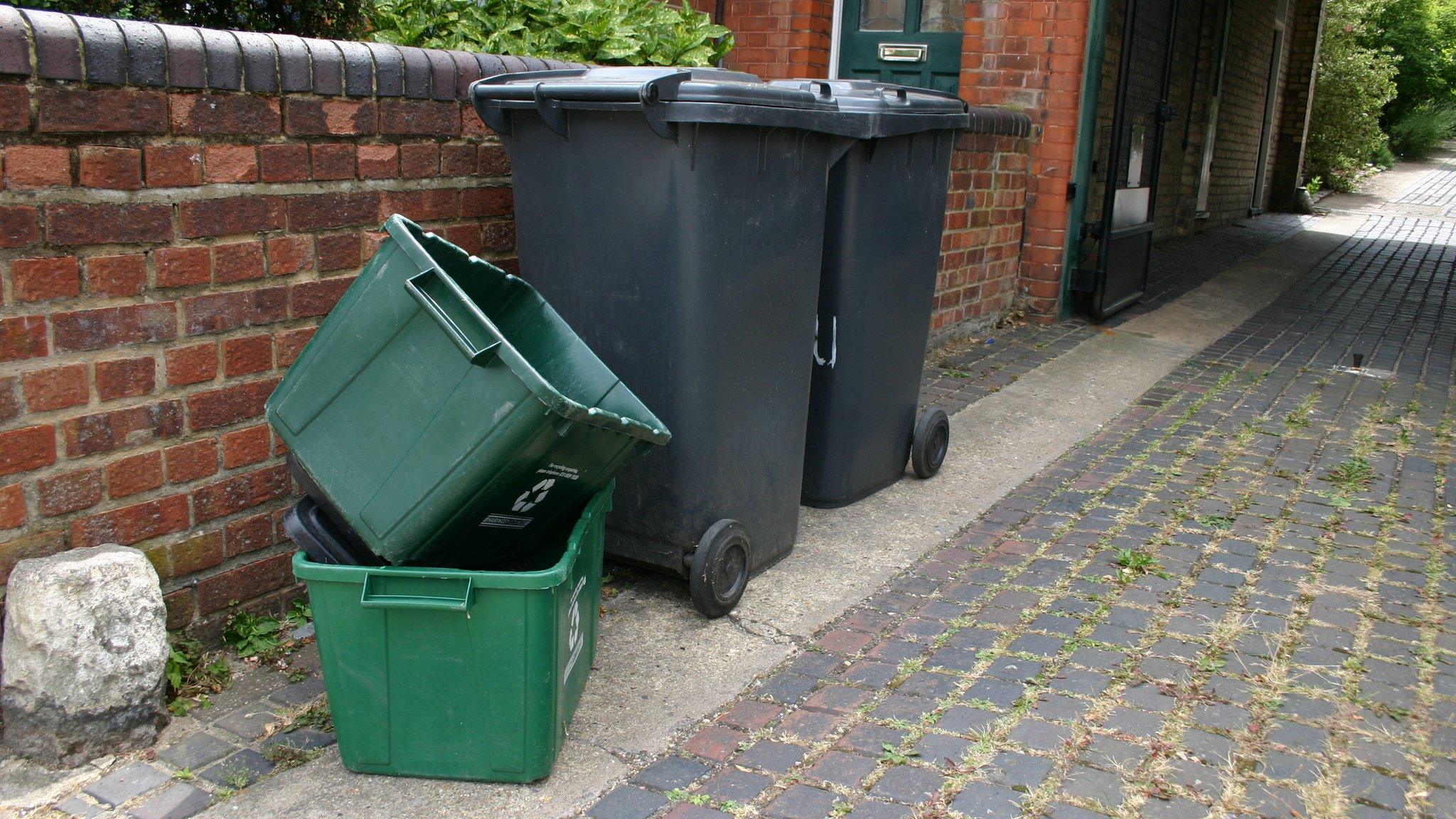Cumbria County Council launches legal action over shake-up
- Published

Opponents of the council rejig believe it is politically motivated
Legal action has begun against an overhaul of local government in Cumbria which will see two new unitary councils replace the current system.
The east of the county is set to have an authority for Barrow, Eden and South Lakeland, while the west will encompass Allerdale, Carlisle and Copeland.
Supporters argue it will bring better services and savings, but critics say it is politically motivated.
Cumbria County Council has now lodged a judicial review application.
Opponents believe the government's decision to create two authorities is aimed at consolidating Conservative power in the north west of the county.
The current council is controlled by a coalition of Labour and Liberal Democrats.
The launch of legal proceedings follows months of conflict between Labour and Conservatives, the Local Democracy Reporting Service said.

The shake-up will see the county have authorities for the east and the west
David Southward, Labour cabinet member for economic development and property, said: "It has to be verified now that our case is worth bothering a judge with.
"It should be fairly quick I hope, all being well. We'll proceed with the main event after that."
He said that members of the cabinet were pleased by the level of reaction "from people across the political spectrum" who were supportive of its decision.
Mr Southward explained the cabinet wanted to put up a fight, although he accepted it was likely the shake-up would ultimately go ahead.
Announcing the decision in July, Robert Jenrick MP, the then local government secretary, said the change would provide better value for money and improved services.
The plan has been backed by Copeland's Conservative elected mayor, Mike Starkie, who believes it will bring financial savings through "economies of scale".
However, some residents are unhappy with how areas have been grouped together.
A two-tier system involves county councils providing education, social services and waste disposal, with district councils responsible for rubbish collection, housing and planning.
In areas governed by unitary authorities, there is a single body which provides all local government services.

Follow BBC North East & Cumbria on Twitter, external, Facebook, external and Instagram, external. Send your story ideas to northeastandcumbria@bbc.co.uk, external.
- Published22 July 2021

- Published9 December 2020
